Here are 27 companion plants for thyme that benefit from its properties or share similar growing conditions. There are 27 beneficial companion plants for thyme and 7 plants that should not be planted with them. As you plan your garden, consider adding thyme as a way to “help” the rest of your garden be more productive.
How Do Companion Plants Benefit Thyme?
Companion planting with thyme has multiple benefits. Some benefit the thyme plants directly and others help the surrounding plants be more healthy or abundant.
Often other herbs prefer similar growing conditions. Many herbs have similar water conditions and prefer the soil to be dryer.
Many fruits and vegetables benefit from being planted near thyme. Thyme can be planted directly in the ground or even in pots to attract pollinators and beneficial predators and repel damaging insects.
Thyme is hardy in zones 5-9 and drought tolerant as well. It requires full sun and well-drained soil. In milder climates, it will remain evergreen over the winter.
Below is the way thyme benefits or grows well with 27 different companion plants for thyme.
Table of Contents
Fruit, Vegetable, Flower, and Herb Companion Plants for Thyme
1. Bay

Benefits: Thyme prefers similar growing conditions.
Nearly every kind of savory soup can benefit from the addition of a couple of bay leaves. This plant is only hardy in zones 7-10, but it grows in similar conditions as thyme and is also a perennial. As such, it makes an ideal companion in a kitchen herbal garden.
2. Blueberries
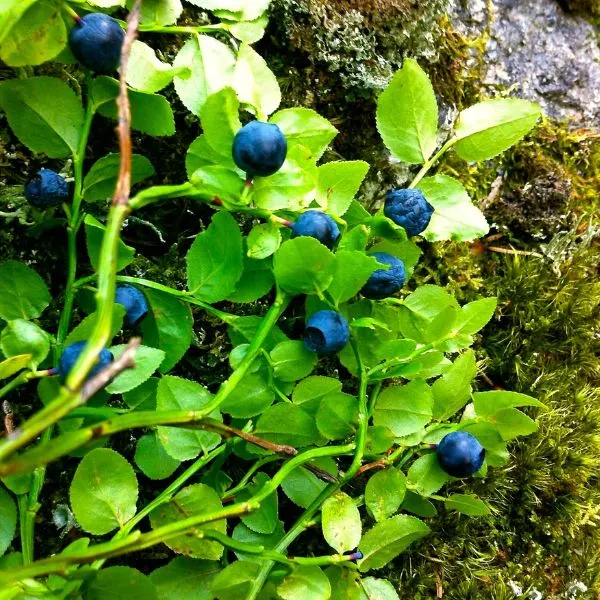
Benefits: Thyme attracts pollinators and repels many types of garden worms.
Before blueberry bushes are ever covered with their blue gems, they have hundreds of flowers. Thyme planted nearby can attract pollinators for the blueberries.
In a study done with thyme oil, it was shown to repel Spotted wing drosophila (Drosophila suzukii) for 24 hours. While applying thyme oil every 24 hours may not seem like a practical application for gardening, it does indicate that companion planting with thyme would benefit blueberries by being a natural repellant against this insect.
3. Bok Choy
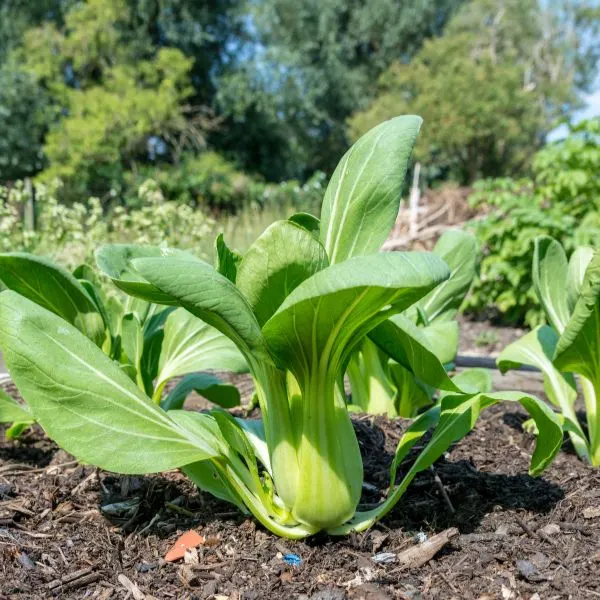
Benefits: Thyme helps repel insects that damage bok choy like flea beetles, loopers, cabbage moths, cabbage worms, and aphids.
Bok Choy is a favorite of people who enjoy Asian cuisine. But as a home gardener, finding it full of holes can be so frustrating. Thyme is a perfect companion as it contains thymol, a natural pesticide. It will repel many of the common pests that damage Bok Choy.
4. Broccoli
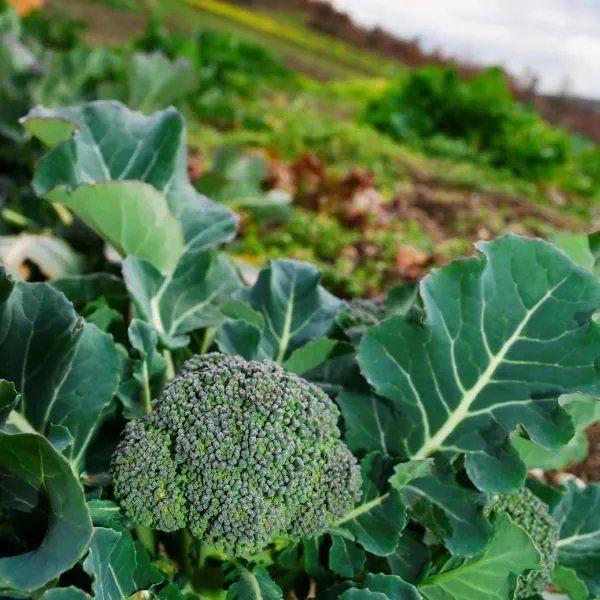
Benefits: Thyme helps repel insects that damage broccoli like flea beetles, cabbage moths, loopers, cabbage worms, and aphids.
Like many other brassicas, broccoli is often the target of damaging insects. It definitely benefits from being planted with thyme which repels the insects that eat it. Thyme, oregano, and other fragrant herbs grow well with broccoli. Consider planting several different herbal companions for maximum benefit!
5. Brussel Sprouts
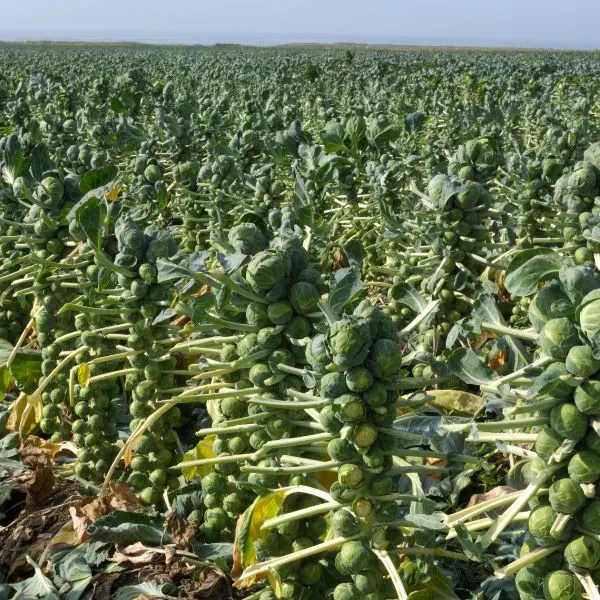
Benefits: Thyme helps repel insects that damage brussel sprouts like cabbage moths, flea beetles, loopers, cabbage worms, and aphids.
Brussel sprouts look like tiny cabbages and they taste like them too. With an extra long growing season, brussel sprouts have a lot of months to be damaged by cabbage worms and other problem insects. Plant thyme nearby to repel insects and don’t plant too many other brassicas nearby. Instead spread them out and intersperse them with companion plants for protection.
In an Iowa study on greenhouses, thyme was shown to be beneficial in repelling diamondback moths from brussel sprouts. Diamondback moths are one of the most pervasive garden pests so finding thyme reduces their population and is helpful for brassicas but also for other plants that are commonly damaged by their larvae.
6. Cabbage
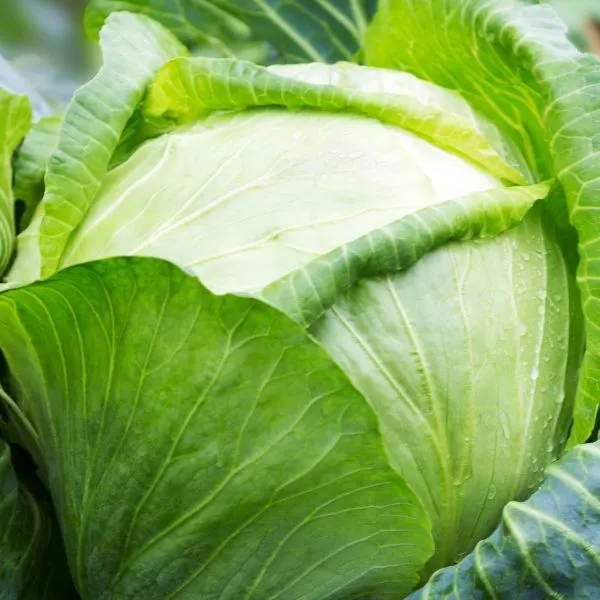
Benefits: Thyme helps repel insects that damage cabbage like flea beetles, loopers, cabbage moths, cabbage worms, and aphids.
Cabbage has the same common insect pests as the other members of the brassica family. If you want to use natural organic gardening techniques, adequate planning and garden mapping is a must in order to ensure adequate spacing. In addition, be prepared to be diligent about monitoring these plants as insect damage can happen very quickly.
7. Cauliflower
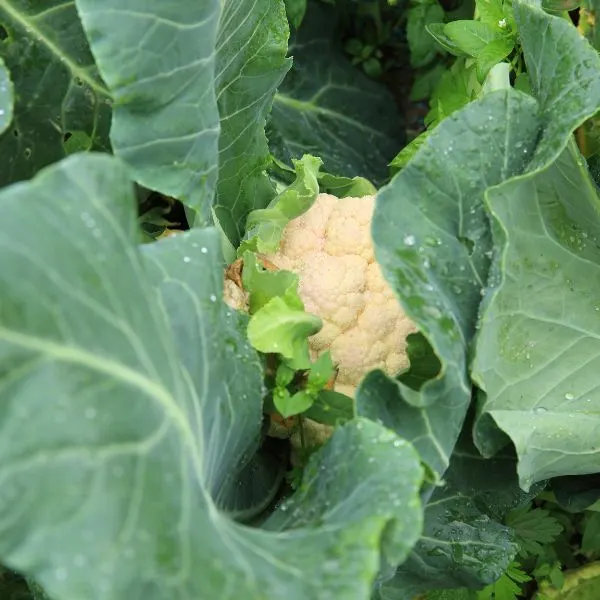
Benefits: Thyme helps repel insects that damage cauliflower-like loopers, cabbage moths, cabbage worms, flea beetles, and aphids.
Thyme is a great companion plant because it contains thymol. This compound is actually used in pesticides sold in the store. In addition to using companion planting, there are about 10 other strategies for keeping insects off your cauliflower and other brassicas!
8. Collard Greens
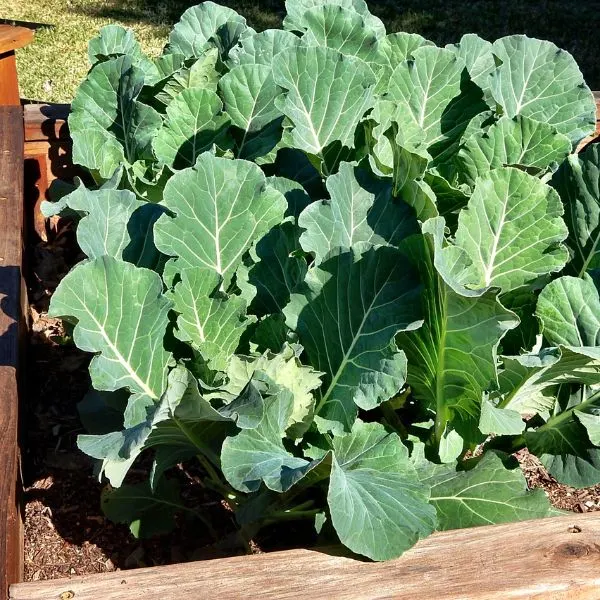
Benefits: Thyme repels cabbage worms.
Along with other fragrant herbs and vegetables (like onions, oregano, and marjoram), thyme helps repel the cabbage worms that so easily damage these greens.
9. Corn

Benefits: Thyme repels earworms.
Earworms are a common pest problem for corn. If you are finding worms around the top of your corn when you shuck it, you have this problem. The good news, especially for the home gardener, is that planting thyme in between or around your corn is a great way to repel the Corn Earworm Moth, Helicoverpa zea, which lays the eggs that result in the larvae that damage the corn.
10. Eggplants
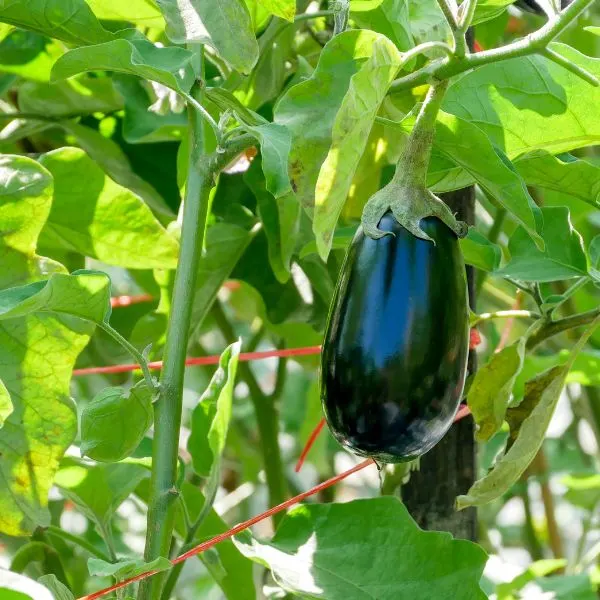
Benefits: benefits from thyme being planted nearby because thyme can help repel aphids and a variety of garden moths.
As with other garden plants, it is not the moths that damage the plants, but the larvae of those moths. There are several kinds of moths whose larvae become problematic for eggplant including armyworm moths and hornworm moths.
Fortunately, thyme’s pungent odor is a natural repellant that keeps these at bay preventing them from laying eggs on your eggplant plants.
11. Kale
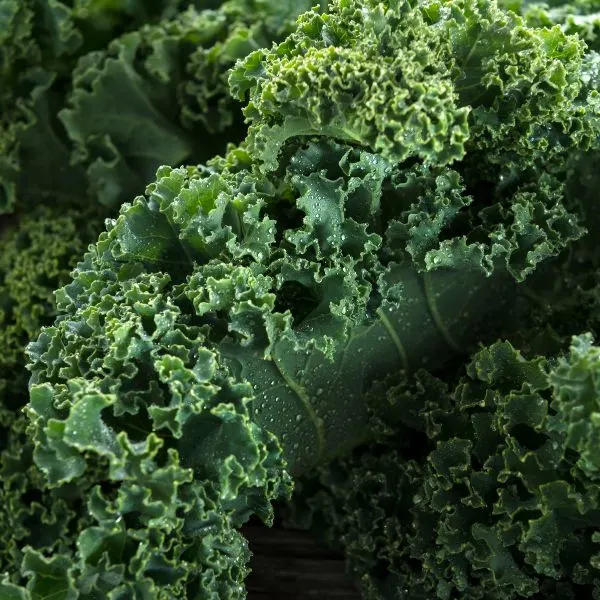
Benefits: Thyme helps repel insects that damage kale like loopers, cabbage worms, flea beetles, aphids, and moths.
Kale is a delicious cole crop that flourishes in cooler temperatures. But no one wants to serve food riddled with insect holes. Fortunately, planting thyme nearby, either in the ground or in a pot, will help repel the most common insects that are attracted to kale.
12. Kohlrabi
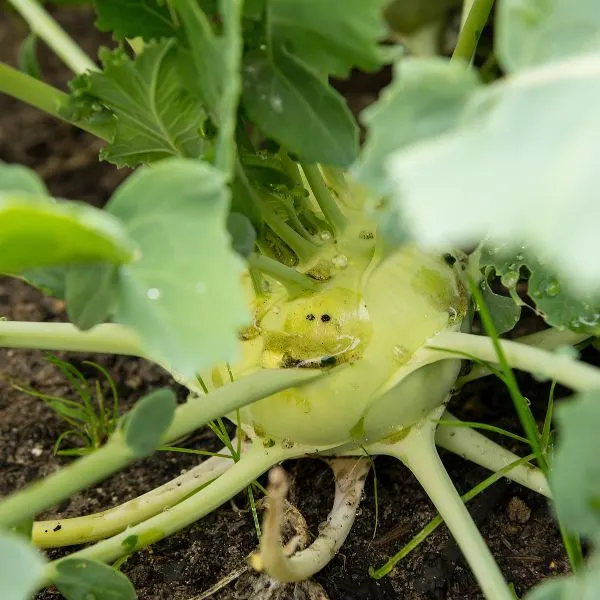
Benefits: Thyme helps repel insects that damage kohlrabi like cabbage worms, loopers, flea beetles, aphids, and moths.
Kohlrabi looks a bit like a turnip that grows above the ground. As part of the brassica family, they are prone to many insect pests and are best managed through a combination of companion planting, crop rotation, and physical pest management, that is, removing the insects or worms by hand if necessary.
The good news is that this vegetable has a tough exterior that tolerates some insect damage more easily than softer brassicas.
In my garden, when I did not use companion planting, I had many cabbage plants get eaten by cabbage worms, but the kohlrabi had far less damage. Adding in companion planting is an excellent way to build up its natural defenses even further.
13. Lavender

Benefit: Both thyme and lavender grow in similar soil conditions and lavender often grows better near thyme.
When adding lavender to an herbal garden, it can be easily planted alongside thyme. Both enjoy similar growing conditions and both provide protective benefits against many insect pests.
English lavender is hardy in zones 5-9 and can survive winter outdoors, while Spanish lavender prefers warmer climates and is only hardy in zones 7-9. With the right variety, lavender can easily become a beautiful addition to your perennial herb garden.
14. Lemon Verbena
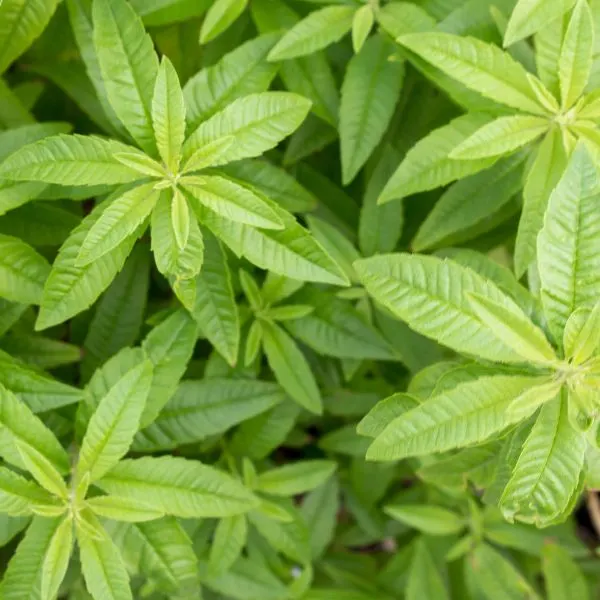
Benefits: It prefers similar soil to thyme.
Lemon verbena is an excellent option for its citrus-flavored leaves. While it is a perennial herb, it is only hard in zones 9-10. As such, northern gardeners will need to either replant annually or choose to overwinter pots indoors.
In either case, this little herb benefits from regular pruning to prevent it from growing too leggy. It can be planted alongside thyme where it prefers soil that is on the dry side.
15. Lettuce
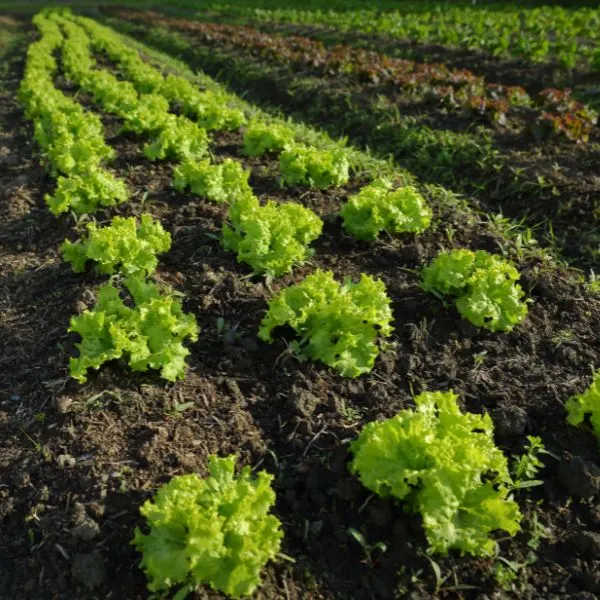
Benefits: Thyme repels slugs.
In the garden, lettuce can be a wonderful companion plant to others because it creates a natural weed barrier. But oregano is very beneficial to lettuce, along with other fragrant herbs like rosemary, oregano, or marjoram, because it repels slugs which commonly damage lettuce.
If you are growing thyme near lettuce, consider growing thyme in a pot. It prefers soil that is more dry and may be overwatered when planted in the bed next to lettuce.
16. Lovage
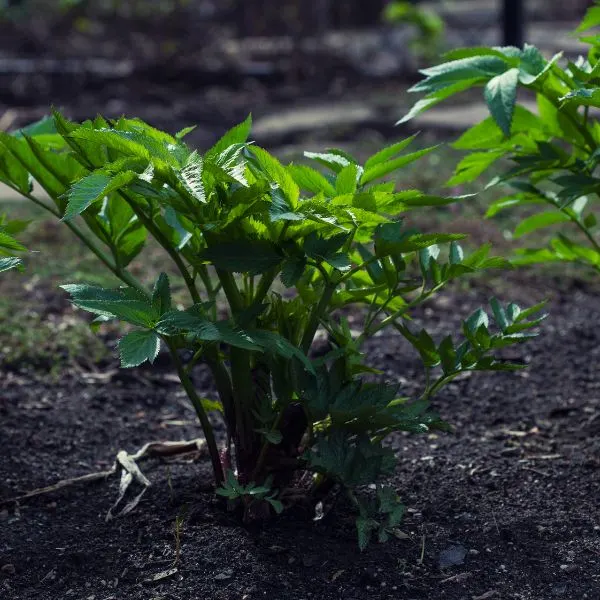
Benefits: Lovage grows in similar soil to thyme.
For home gardeners looking to expand their perennial herb gardens, lovage is a must. This herb, hardy in zones 3-9, has a taste similar to celery. But, it is MUCH easier to grow than celery and returns first thing in the spring year after year!
Its seeds are what is commonly known as celery seeds in the spice section. It can easily be planted with thyme and other perennial herbs and it attracts parasitic wasps which are beneficial predators to many insects.
17. Marjoram
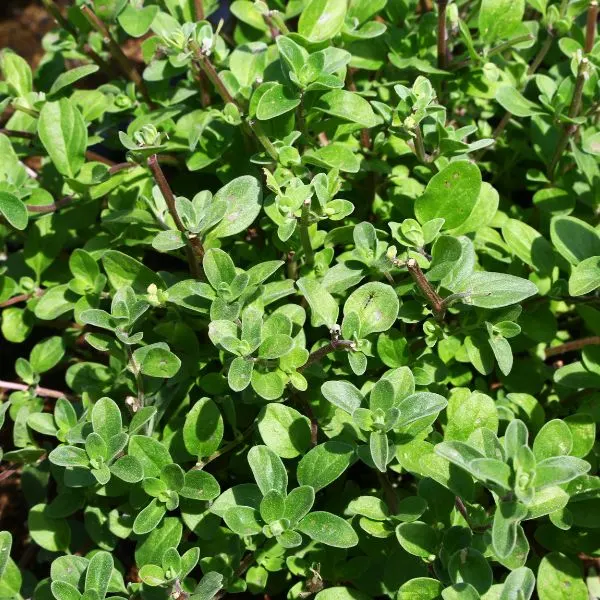
Benefit: Prefers dry soil like thyme
Known as Origanum majorana, this herb is in the same genus as Oregano but a different species. As such, it has a lot of similar qualities. It enjoys soil that is well-drained and slightly drier which makes it a great companion for Thyme. Hardy in zones 7-8, it is not tolerant of cold or too much heat.
In the north, it is treated as an annual or overwintered inside…and in the far south, it won’t survive the summer heat. Even so, it has wonderful flavoring making it perfect for a variety of Mediterranean dishes.
18. Oregano
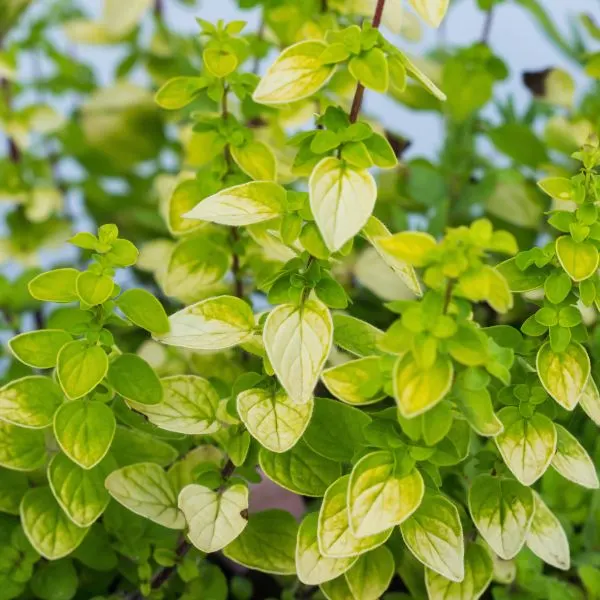
Benefit: Grows in the same soil conditions as Thyme.
Oregano has many similar properties to thyme. A woody perennial that is winter hardy like thyme, it can grow in similar soil conditions that are more dry. If you have a permanent perennial herb bed, include this one.
Because oregano enjoys dryer soil, gardeners often plant it in pots so it can benefit plants that like more water. If you have potted up oregano, be sure to bring one inside for the winter so you can continue to enjoy cooking with it all winter long!
19. Potatoes
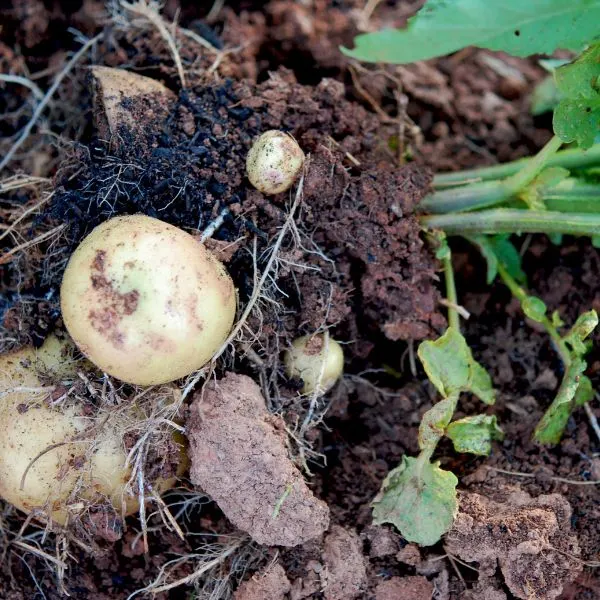
Benefits: Thyme repels hornworms and attracts insects that that prey on potato beetles. can be susceptible to potato beetles, thyme makes a good companion plant for potatoes because it attracts insects that prey on potato beetles.
20. Rosemary
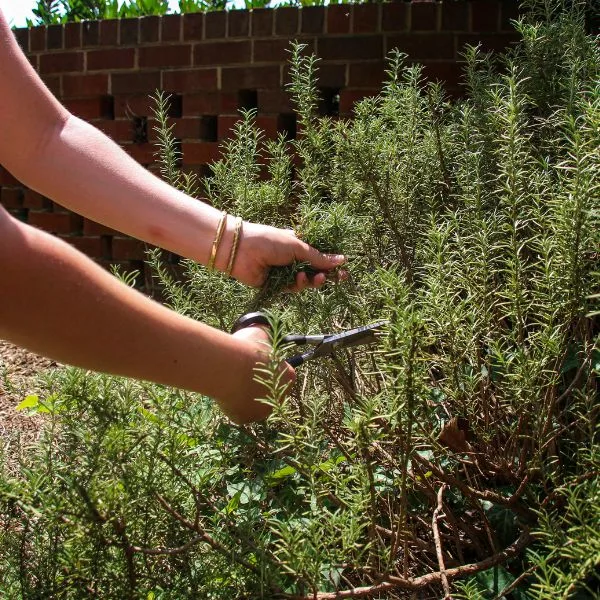
Benefit: Rosemary grows in similar soil to thyme and prefers it more dry than damp.
Rosemary and thyme make a dynamic pair as companion plants and in recipes! While they enjoy similar growing requirements, when grown together they act as strong insect and worm repellent.
Thyme repels cabbage moths and cabbage worms and Rosemary repels other insects. Rosemary is only hardy in zones 7-10, so if you use this in a more northern garden, be sure to keep it in a pot and overwinter it!
21. Roses

Benefits: Thyme repels backflies and aphids.
Roses stand as the crown jewel of any flower garden. In my own garden, I have quite a few Knock-Out Roses in my flower beds. But even as they look stately growing without too many other flowers nearby, they easily become the target for pests.
Thankfully, roses enjoy similar growing requirements to thyme. The foliage of thyme is actually quite attractive so having patches here and there in the flower garden will serve two purposes, both beautifying the beds and repelling insects by its strong scent.
22. Sage
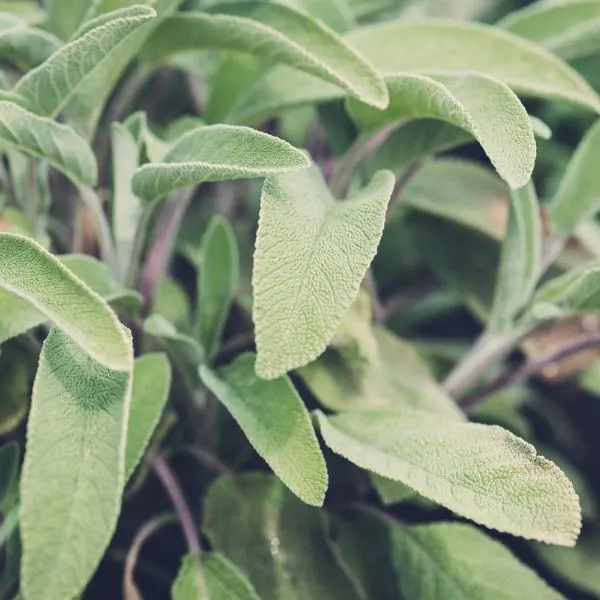
Benefits: Sage and thyme grow great together in the same soil conditions.
Sage is another great addition to your perennial herb garden if you live in zones 5-8. Further south and will need to be protected from the heat and further north from the cold during the winter. Sage is also an excellent insect repellent against snails, cabbage moths, beetles, black flea beetles, carrot flies, and flea beetles!
23. Savory
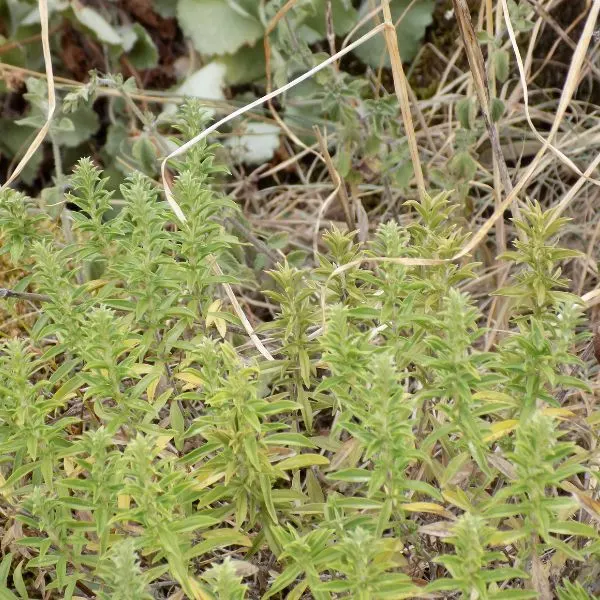
Benefits: Savory and thyme share similar growing requirements.
If you are expanding your repertoire as a gardener and a chef, be sure to add some savory to your garden alongside thyme. Savory adds a beautiful smokey flavor to meat, beans, or stuffing.
Choose summer savory for a lighter flavor and winter savory for richer, heavier foods. Savory is hardy in zones 1-11, so it should work for any gardener!
24. Shallots
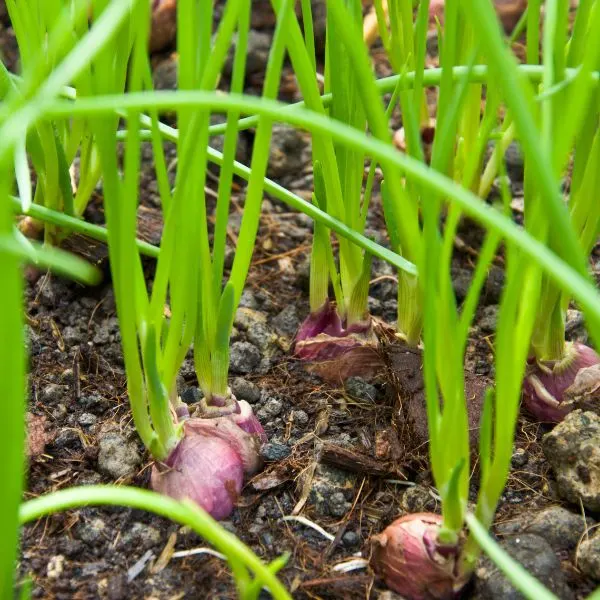
Benefits: Shallots flavor improves with thyme.
Experienced gardeners always say that planting shallots with thyme will improve their flavor. And after growing these two together, consider making roasted shallots with thyme as a side dish. These are great together!
25. Strawberries
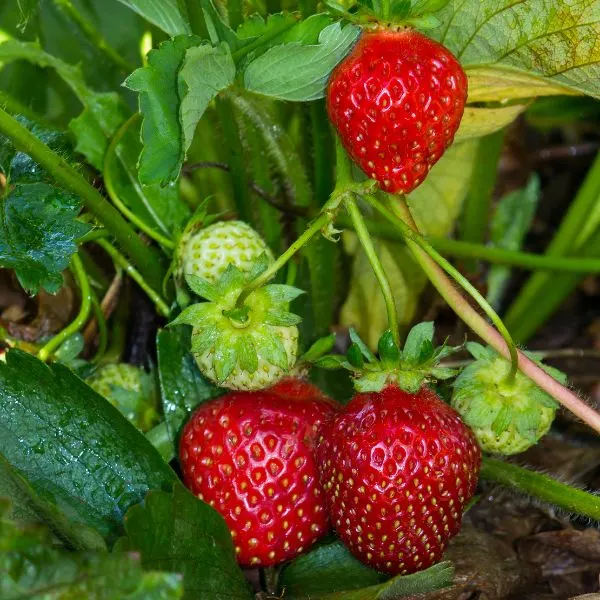
Benefits: Thyme deters parasitic worms that damage strawberry fruits and attracts hoverflies.
Strawberries are often vulnerable to both insect and wildlife pests. And thyme helps repel parasitic worms that damage them.
In addition, folk garden wisdom says that thyme can help improve overall strawberry production. That may simply be because the fruits are not being damaged or it may be because they attract pollinators to the strawberries.
In addition to repelling worms, thyme also attracts hoverflies which are beneficial predators that eat soft-bodied insects such as aphids, thrips, scale, and caterpillars.
26. Tomatoes
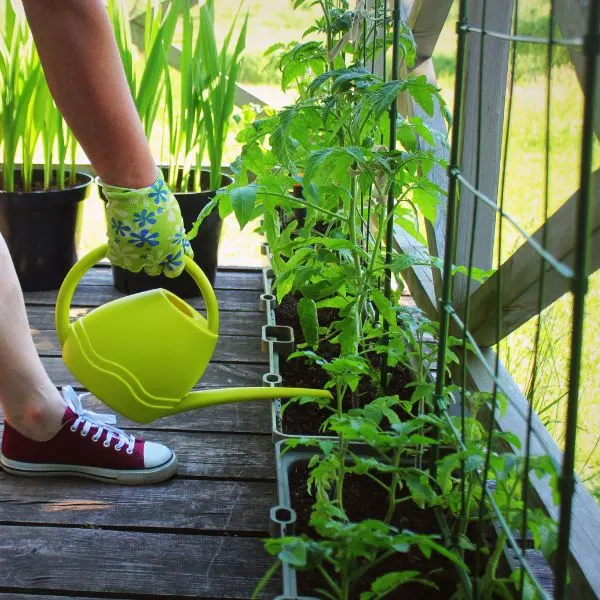
Benefits: Thyme repels hornworms.
If you have ever seen giant green worms on your tomato plants, you are looking at hornworms. At around 3 inches long, these creatures have a big appetite and can do some serious damage. The good news is thyme repels hornworms.
This year, keep your tomatoes happy by interspersing them with thyme or oregano and some alyssum to attract pollinators.
27. Turnips
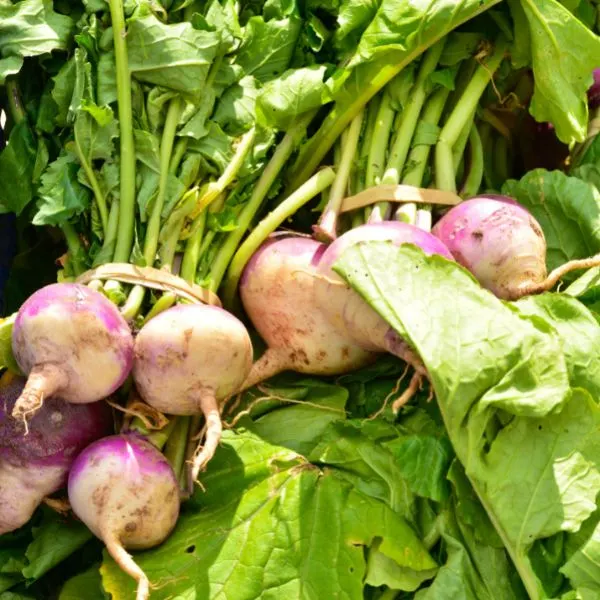
Benefits: Thyme repels cabbage worms, loopers, flea beetles, aphids and flea beetles.
If you are growing turnips to eat (and not as a trap crop themselves), you will want to protect them from common insect pests.
Thyme contains a powerful natural insect repellent and its aromatic leaves deter insects that want to feed on turnips. Along with thyme, oregano and rosemary work well in repelling these insects and more.
What to Avoid Planting with Thyme
While there are many excellent companion plants for thyme, there are also a few bad companion plants for thyme that should be avoided. Most of them should not be planted in the same space due to different watering needs.
1. Basil
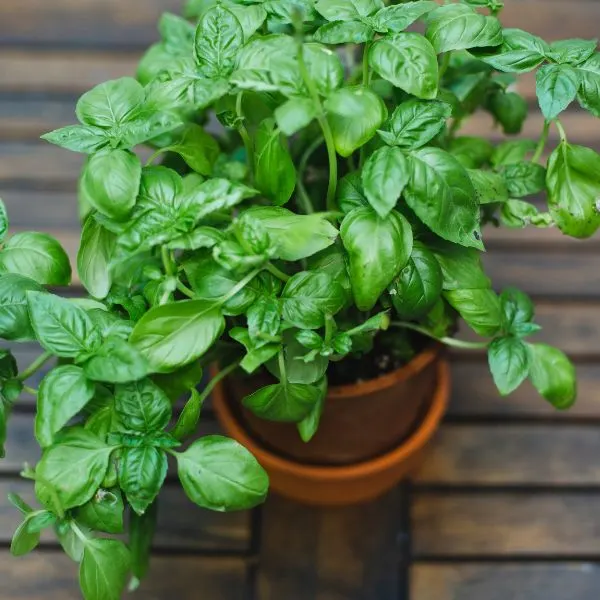
Basil thrives in rich, moist soil and thyme prefers it much dryer. If they are planted together, thyme should be placed in a pot to allow for different watering needs.
2. Chives
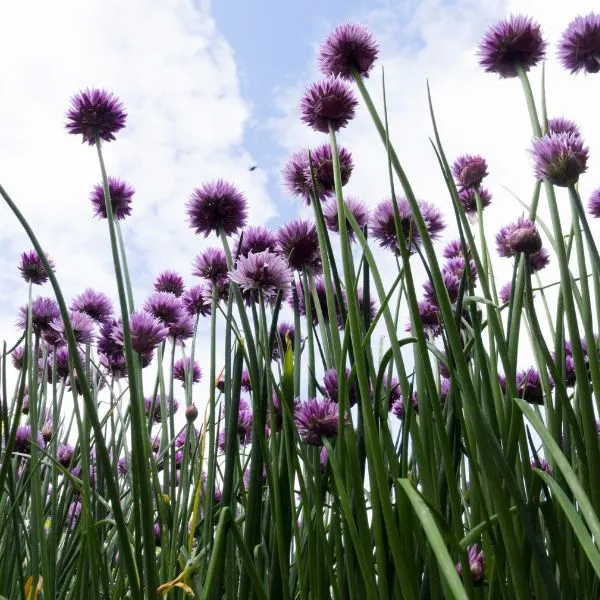
Chives like regular water and damp soil, while thyme prefers time to dry out a bit. Either keep them in separate beds or pot up one.
3. Cilantro
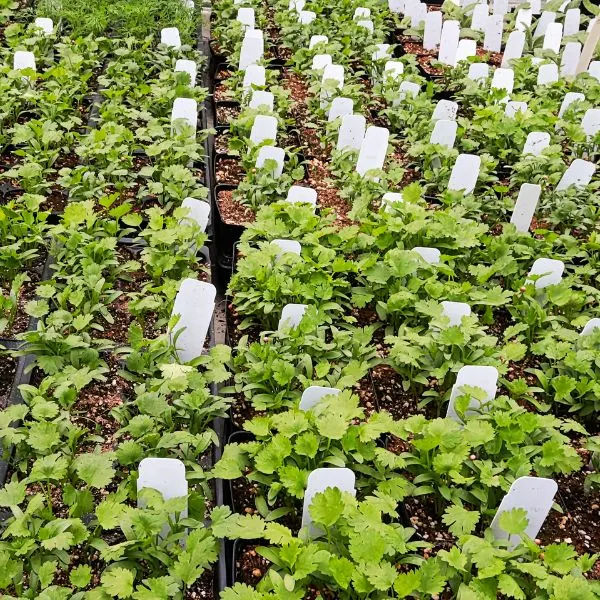
Cilantro is an essential herb if you enjoy Mediterranean foods. Equally essential is that you do not plant it with thyme. Cilantro needs to be watered often and thyme does better if it is not.
4. Fennel
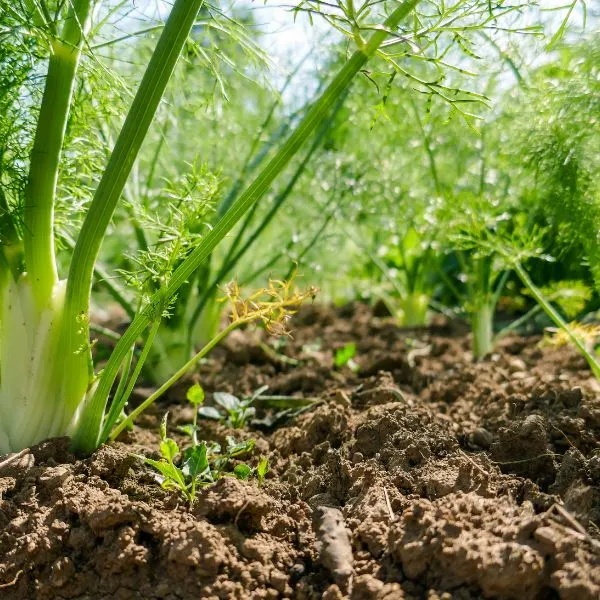
While fennel is great at keeping pests away, it is terrible as a companion plant for almost everything including thyme. It suppresses the germination of seeds and stunts growth.
5. Parsley
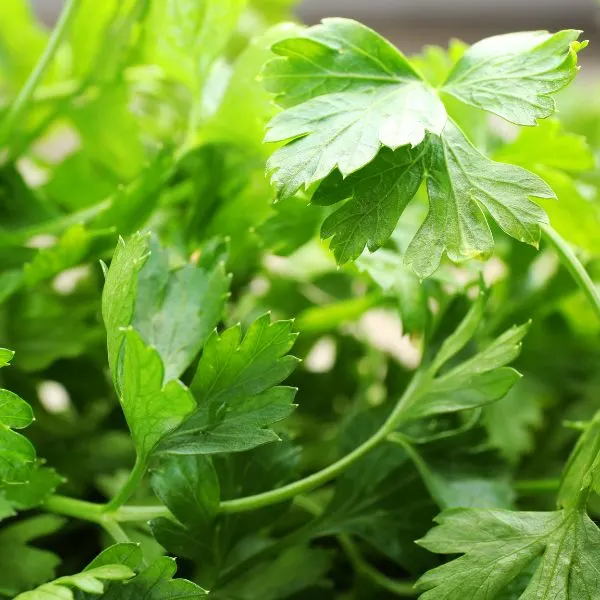
Like basil, cilantro, mint and tarragon, parsley does not companion plant well with thyme because of different watering needs. A better idea is to plant these herbs that need more water together!
6. Mint
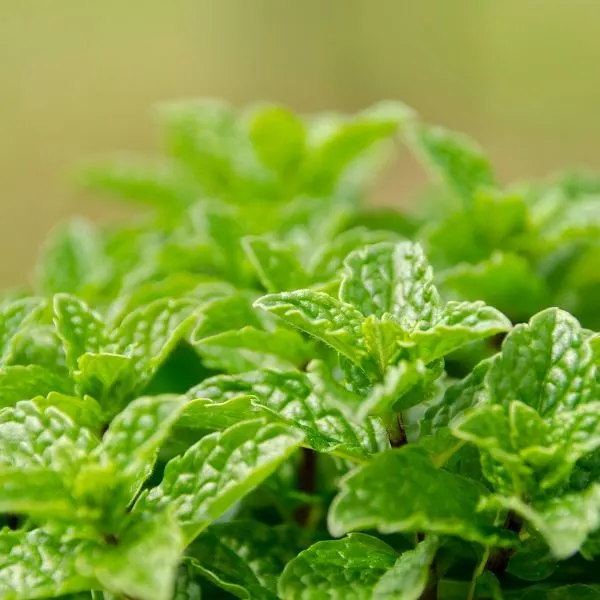
While mint can companion plant with many things, it will often take over and spread like crazy. In this case and even with the different types of mint out there, it is not friendly with thyme because of very differing watering needs.
7. Tarragon
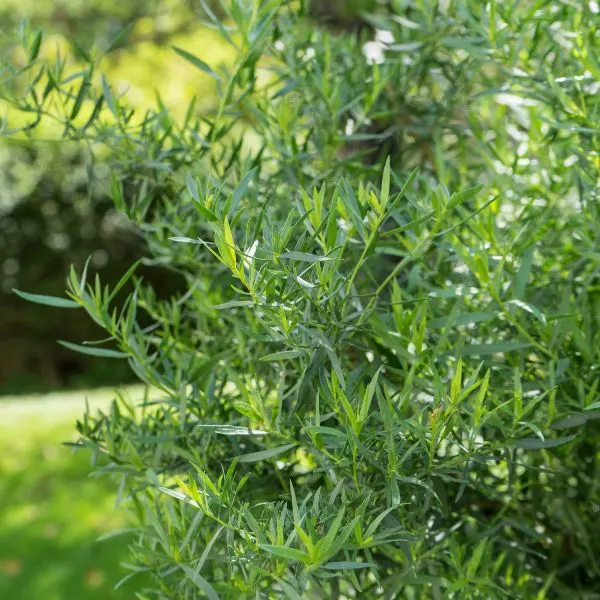
While tarragon is very hardy and can survive freezing temperatures, it does not like drought conditions. It needs regular water which makes its growing needs quite different from Thyme.
FAQ About Thyme
Where should I plant thyme in my garden?
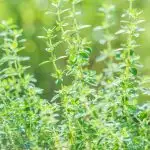
Thyme likes full sun. It is hardy in zones 5-9 and will overwinter as a perennial. It needs well-drained soil and can tolerate poor soil. It prefers alkaline soil. Clay-type soils tend to be more alkaline and sandy soils more acidic. So planting in clay soil that is well drained would be a perfect fit.
Can I plant basil and thyme together?
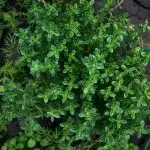
They can be planted in the same vicinity but not in the same bed. Basil needs more water and thyme prefers drier soil. If they are planted “together,” one needs to be in a pot!
Can lavender and thyme be planted together?

Yes, thyme and lavender share very similar ideal growing conditions. Both prefer well-drained soil that is allowed to be drier.
Can i plant thyme with lettuce?
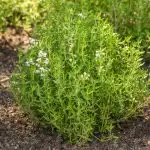
Yes, lettuce and thyme can be planted together without any issue.
Can you plant thyme with peppers?
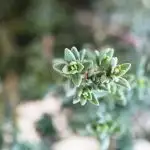
Yes, peppers and lettuce can go together. Thyme repels pests and attracts pollinators which is what makes it such a good companion.
Do rosemary and thyme grow well together?
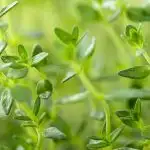
Yes, rosemary and thyme are well-suited to grow together. Both plants are Mediterranean herbs that are drought-tolerant and thrive in well-drained, sandy soil.
Should you cut thyme back?
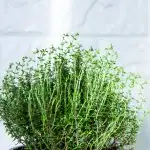
Thyme should be trimmed after it is done flowering to promote new growth. Thyme that is not trimmed may become woody and need to be replaced after a few years.
Grow Thyme with Plants that Have Similar Growing Needs.
Thyme is obviously beneficial to many fruits, vegetables, and other plants because of its strong insect-repelling properties. The key to success in using thyme as a companion plant always comes down to choosing plants with similar growing needs.
Because thyme prefers the soil to be drier, if it is planted near things needing more water, put it in a pot. Otherwise, plant it in borders or in between plants for maximum benefit.
Including thyme along with other aromatic herbs with increase your garden’s productivity and reduce the number of pests at the same time.
More Companion Plant Articles
